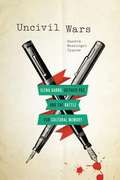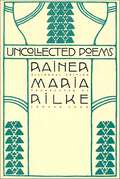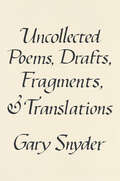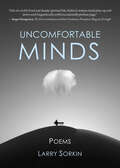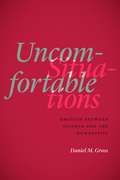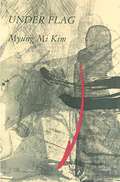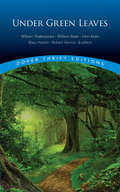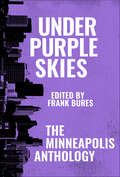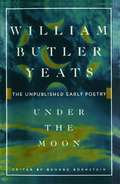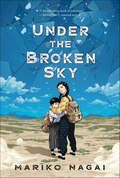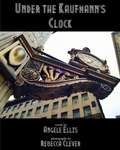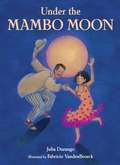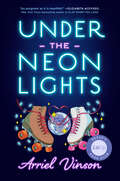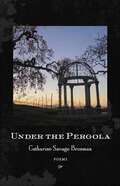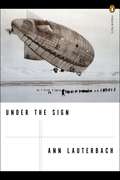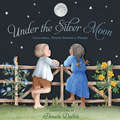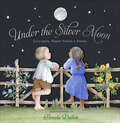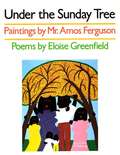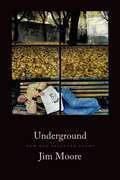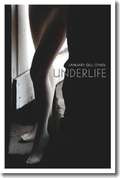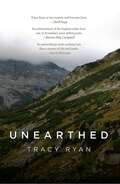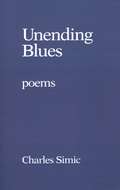- Table View
- List View
Uncivil Wars: Elena Garro, Octavio Paz, and the Battle for Cultural Memory
by Sandra Messinger CypessThe first English-language book to place the works of Elena Garro (1916–1998) and Octavio Paz (1914–1998) in dialogue with each other, Uncivil Wars evokes the lives of two celebrated literary figures who wrote about many of the same experiences and contributed to the formation of Mexican national identity but were judged quite differently, primarily because of gender. While Paz’s privileged, prize-winning legacy has endured worldwide, Garro’s literary gifts garnered no international prizes and received less attention in Latin American literary circles. Restoring a dual perspective on these two dynamic writers and their world, Uncivil Wars chronicles a collective memory of wars that shaped Mexico, and in turn shaped Garro and Paz, from the Conquest period to the Mexican Revolution; the Spanish Civil War, which the couple witnessed while traveling abroad; and the student massacre at Tlatelolco Plaza in 1968, which brought about social and political changes and further tensions in the battle of the sexes. The cultural contexts of machismo and ethnicity provide an equally rich ground for Sandra Cypess’s exploration of the tandem between the writers’ personal lives and their literary production. Uncivil Wars illuminates the complexities of Mexican society as seen through a tense marriage of two talented, often oppositional writers. The result is an alternative interpretation of the myths and realities that have shaped Mexican identity, and its literary soul, well into the twenty-first century.
Uncollected Poems
by Rainer Maria RilkeEdward Snow's selection of more than one hundred of Rainer Maria Rilke's little-known and neglected poems in this bilingual edition offers the reader a glimpse into one of the most powerful and underrated accomplishments in all of modern poetry. The poems in Uncollected Poems reveal a freer, more dangerous, less self-fashioning Rilke than the poet of the Elegies and the Sonnets; and Snow's translations of them, while always scrupulously faithful to the German, bring Rilke's power and music into English with unmatched grace and intelligence.
Uncollected Poems, Drafts, Fragments, and Translations
by Gary SnyderA collection of previously uncollected and unpublished works by a Pulitzer Prize-winning Beat poet Gary Snyder, written during his most productive and important yearsFar from being a simple miscellany of poems, Uncollected Poems, Drafts, Fragments, and Translations contains some of Gary Snyder&’s best work, written during his most productive and important years.Many of these have been published in magazines or as broadsides, including Spel Against Demons, Dear Mr. President, Hymn to the Goddess San Francisco, Smokey the Bear Sutra, A Curse on the Men in Washington, Pentagon. The collection also includes a great number of translations from Chinese and Japanese poets. Much of this work has been gleaned from journals, manuscripts and correspondence, and never before published in any form.
Uncomfortable Minds: Poems
by Larry Sorkin“Sorkin’s restless mind plays up and down each linguistically artful, occasionally profane page.” —Roger Weingarten, author of The Four Gentlemen and Their FootmenUncomfortable Minds is Larry’s Sorkin’s riff on poet e.e. cummings’ words, “Cambridge ladies who . . . are unbeautiful and have comfortable minds,” which refer to the conceit that uncomfortable minds are universal to all human beings. Larry Sorkin’s collection of poems—sometimes joyful, sometimes elegiac—explore the idea of the restless, uncomfortable state as either something we can run from, try to fix, or embrace. Each poem in the collection explores some disturbance in the psyche, with poetry as a way to confront the disturbance, use it, embrace it.“Reflections both bitter and tangy, sweet and unbearable.” —Lou Lipsitz, author of Seeking the Hook
Uncomfortable Situations: Emotion between Science and the Humanities
by Daniel M. GrossWhat is a hostile environment? How exactly can feelings be mixed? What on earth might it mean when someone writes that he was “happily situated” as a slave? The answers, of course, depend upon whom you ask. Science and the humanities typically offer two different paradigms for thinking about emotion—the first rooted in brain and biology, the second in a social world. With rhetoric as a field guide, Uncomfortable Situations establishes common ground between these two paradigms, focusing on a theory of situated emotion. Daniel M. Gross anchors the argument in Charles Darwin, whose work on emotion has been misunderstood across the disciplines as it has been shoehorned into the perceived science-humanities divide. Then Gross turns to sentimental literature as the single best domain for studying emotional situations. There’s lost composure (Sterne), bearing up (Equiano), environmental hostility (Radcliffe), and feeling mixed (Austen). Rounding out the book, an epilogue written with ecological neuroscientist Stephanie Preston provides a different kind of cross-disciplinary collaboration. Uncomfortable Situations is a conciliatory work across science and the humanities—a groundbreaking model for future studies.
Under Flag
by Myung Mi KimMyung Mi Kim writes in a stark, unflinching voice that alternately drives to the core of painful subject matter and backs off to let beauty speak for itself.
Under Green Leaves: A Book Of Rural Poems (classic Reprint) (Dover Thrift Editions)
by Richard Henry StoddardThis treasury of verse rejoices in the pleasures of the countryside and the beauty of the outdoors. Originally published in the mid-19th century, Under Green Leaves offers a wealth of poetry inspired by nature, from lyrics by English dramatists such as William Shakespeare, Ben Jonson, and Beaumont and Fletcher, to works by Metaphysical, Romantic, and Victorian poets.Dozens of enchanting verses include William Blake's "Piping Down the Valleys Wild," "Ode to a Nightingale" by John Keats, Andrew Marvell's "The Garden," and Thomas Campbell's "To the Evening Star." No compilation of nature poetry would be complete without contributions from William Wordsworth, whose "Lines Written in Early Spring" and "To a Skylark" appear here. Other featured poets include John Milton, Alfred Tennyson, Robert Herrick, George Herbert, Mary Howitt, and many other writers whose meditations on flowers, birds, woodlands, and summer evenings remain ever green.
Under Purple Skies: The Minneapolis Anthology (Belt City Anthologies)
by Frank Bures&“The ultimate (literary) tour guide to the neighborhoods and wild places, history and politics, culture and cuisine, music and myths of the Twin Cities&” (Benjamin Percy, author of The Wilding). In recent years, Minneapolis has become one of America&’s literary powerhouses. With over fifty poems and essays, Under Purple Skies: The Minneapolis Anthology collects some of the most exciting work being done in, or about, Minneapolis and the Twin Cities area. The narratives delve into the complexities of Minneapolis life—with threads that stretch back not just to Scandinavia, but across the world. This volume&’s contributors include Marlon James, Shannon Gibney, Kelly Barnhill, James Wright, and many more. Collectively, they have won, or been shortlisted for, the Newbery Award, the Man Booker Prize, the Pulitzer, the Caldecott Award, the National Book Award, the Minnesota Book Award, among other awards. The wide-ranging stories featured here include: A tour through Prince&’s Minneapolis The story of the Metrodome&’s demolition A story of a Somali immigrant&’s journey to Eden Prairie Eating Halva on Lake Street
Under The Moon: The Unpublished Early Poetry
by George Bornstein William Butler YeatsWhile working on a facsimile edition and transcription of W. B. Yeats's surviving early manuscripts, renowned Yeats scholar George Bornstein made a thrilling literary discovery: thirty-eight unpublished poems written between the poet's late teens and late twenties. These works span the crucial years during which the poet "remade himself from the unknown and insecure young student Willie Yeats to the more public literary, cultural, and even political figure W. B. Yeats whom we know today." "Here is a poetry marked by a rich, exuberant, awkward, soaring sense of potential, bracingly youthful in its promise and its clumsiness, in its moments of startling beauty and irrepressible excess," says Brendan Kennelly. And the Yeats in these pages is already experimenting with those themes with which his readers will become intimate: his stake in Irish nationalism; his profound love for Maud Gonne; his intense fascination with the esoteric and the spiritual. With Bornstein's help, one can trace Yeats's process of self-discovery through constant revision and personal reassessment, as he develops from the innocent and derivative lyricist of the early 1880s to the passionate and original poet/philosopher of the 1890s. Reading-texts of over two dozen of these poems appear here for the first time, together with those previously available only in specialized literary journals or monographs. Bornstein has assembled all thirty-eight under the title Yeats had once planned to give his first volume of collected poems. Under the Moon is essential reading for anyone interested in modern poetry.
Under the Broken Sky
by Mariko Nagai"Necessary for all of humankind, Under the Broken Sky is a breathtaking work of literature."—Booklist, starred reviewA beautifully told middle-grade novel-in-verse about a Japanese orphan’s experience in occupied rural Manchuria during World War II.Twelve-year-old Natsu and her family live a quiet farm life in Manchuria, near the border of the Soviet Union. But the life they’ve known begins to unravel when her father is recruited to the Japanese army, and Natsu and her little sister, Cricket, are left orphaned and destitute. In a desperate move to keep her sister alive, Natsu sells Cricket to a Russian family following the 1945 Soviet occupation. The journey to redemption for Natsu's broken family is rife with struggles, but Natsu is tenacious and will stop at nothing to get her little sister back.Literary and historically insightful, this is one of the great untold stories of WWII. Much like the Newbery Honor book Inside Out and Back Again by Thanhha Lai, Mariko Nagai's Under the Broken Sky is powerful, poignant, and ultimately hopeful.Christy Ottaviano Books
Under the Kaufmann's Clock: Fiction, Poems, and Photographs of Pittsburgh
by Angele EllisAngele Ellis’s obsession with remembering the past ...results in a tremendous variety of poems—narrative, lyric, narrative-lyric blur, prose poems—and flash fiction pieces—which differ widely in style, tone, and length... We are privileged to enjoy the writings of such a talented, caring, versatile author. Readers will also want to linger over Under the Kaufmann’s Clock in order to savor the photos by Rebecca Clever. —Eileen Murphy, Crab Fat Magazine <P><P>[T]he city’s many histories, both public and private, emerge in non-linear glimpses and portraits, lyric moments and micro-narratives... The approach to these moments is tender, curious. The poems follow these ghosts, haunt them even, and appear to feel the tenderness is mutual… —Sally Rosen Kindred, Pittsburgh Poetry Review
Under the Mambo Moon
by Julia Durango Fabricio VandenbroeckMarisol loves helping her father out on Friday nights in his music shop as their neighbors stop by to visit and listen to their favorite dance music from their home countries.
Under the Neon Lights
by Arriel VinsonIn this sparkling and heartfelt debut YA novel in verse by a Reese's Book Club LitUp fellow, a young Black girl discovers first love, self-worth, and the power of a good skate. Perfect for fans of Elizabeth Acevedo and Joya Goffney.Sixteen-year-old Jaelyn Coleman lives for Saturdays at WestSide Roll, the iconic neighborhood roller rink. On these magical nights, Jae can lose herself in the music of DJ Sunny, the smell of nachos from the concession, and the crowd of some of her favorite people—old heads, dance crews, and other regulars like herself. Here, Jae and other Black teens can fully be themselves.One Saturday, as Jae skates away her worries, she crashes into the cutest boy she&’s ever seen. Trey&’s dimples, rich brown skin, and warm smile make it impossible for her to be mad at him though. Best of all, he can&’t stop finding excuses to be around her. A nice change for once, in contrast with her best friend&’s cold distance of late or her estranged father creeping back into her life.Just as Jae thinks her summer might change for the better, devastating news hits: Westside Roll is shutting down. The gentrification rapidly taking over her predominantly Black Indianapolis neighborhood, filling it with luxury apartments and fancy boutiques, has come for her safe-haven. And this is just one trouble Jae can&’t skate away from.Debut author Arriel Vinson&’s lyrical and contemplative story of young Black love and coming of age in Indianapolis ushers in an exciting new voice in YA literature.
Under the Pergola: Poems
by Catharine Savage BrosmanAlways spirited and elegant, by turns witty and meditative, Catharine Savage Brosman's Under the Pergola contemplates Louisiana, past and present, before traveling a broader path that crosses Colorado landscapes and the island of Sicily.In her eighth collection of poems, Brosman evokes the Pelican State's trees, birds, rivers, swamps, bayous, New Orleans scenes, historic houses, and colorful characters. She also recounts, in free verse, formal verse, and one prose poem, the "misdeeds of Katrina" as she and others experienced them.Other poems range widely, from reflections on writers Samuel Johnson, Paul Claudel, André Malraux, and James Dickey to quiet meditations on the American West, Odysseus, fruits and vegetables, and the recent "light years" of the poet's life -- which she characterizes as "silken... slipping smoothly off" like a gown.
Under the Poetree
by Lakshmi ShankarSing along with your children and let the bubbling streams, the swaying trees and the sloping hills fill your hearts with joy. Poetry for children.
Under the Sign
by Ann LauterbachA new collection from the author of Or To Begin Again, a finalist for the 2009 National Book Award in Poetry Ann Lauterbach is one of America’s most innovative and provocative poets, acclaimed for her fierce, sensuous and intellectually charged poems. In this, her ninth book of poems, Lauterbach pursues longstanding inquiries into how language forms and informs our understanding of the relation between empirical observation and subjective response; worldly attachment and inwardness; the given and the chosen. The poems set out not so much to find cogent resolutions to these fluid dyads as to open them to the fact of unknowing that is at the core of all human curiosity and desire. A central prose section tracks along a meditative edge, engaging the risky task of opening the mind to the limits of apprehension; the final section evokes, in the figure of the instructor, the essential contemporary question of how information becomes knowledge. .
Under the Silver Moon: Lullabies, Night Songs & Poems
by Pamela DaltonCut-paper artist Pamela Dalton's magically intricate illustrations illuminate a generous collection of lullabies and goodnight poems. Recalling traditional favorites from childhood and embracing a wide range of sources and cultures, this timeless collection makes a lovely addition to any e-bookshelf or bedtime read-aloud ritual. Sure to enchant both children and their parents, Dalton's exquisite detail and sophisticated aesthetic—always informed by warmth and a deep humanity—will speak to anyone looking for the perfect book for a newborn.
Under the Silver Moon: Lullabies, Night Songs & Poems
by Pamela DaltonA &“lovely&” collection of lullabies and goodnight poems, accompanied by magically intricate illustrations (Publishers Weekly). Recalling traditional favorites from childhood and embracing a wide range of sources and cultures, this timeless collection is a beautiful addition to any bedtime read-aloud ritual. Sure to enchant both children and their parents, cut-paper artist Pamela Dalton&’s exquisite detail and sophisticated aesthetic—always informed by warmth and a deep humanity—will speak to anyone wanting a gentle descent into dreamland. &“The tender fragility of Ms. Dalton's scissor-cut pictures seems just right for bedtime.&” —The Wall Street Journal
Underground: New and Selected Poems
by Jim Moore"Jim Moore writes of history, of love, of pain, of the intimate revelations of a consciousness alive to itself." —C. K. Williams "It's coming so fast,"says an old woman across from me, speaking to no one in particular:she nods her head in agreement with herself and strictly speakingwho can argue with her? —from "Underground"Jim Moore's first career retrospective shows a poet whittling down experience to its essential confrontation with one's own limitations, whether it be time running short, or understanding running thin, or capacity to think or feel or love enough running low. Underground gathers the best poems from Moore's seven previous books and includes twenty new poems. This is the definitive volume by a poet of great depth and generosity.
Underlife
by January Gill O'NeilThe dynamics of race, family, motherhood, career, sex and ultimately, transformation are explored in this debut collection. Underlife represents the wilderness of thought and emotion hidden away from the external world. Through O'Neil's narratives we see our lives as if for the first time.
Undone
by Sue GoyetteShortlisted for the 2005 Atlantic Poetry Prize, the 2005 Dartmouth Book Award and the 2005 Acorn-Plantos Award for People's Poetry Undone is a cornucopia of passionate poems arranged into three sections. "Forgotten" has mostly to do with the aftermath of a heart-rending breakup; "Kindred" features poems on fellow artists in poetry, music and painting (ranging from Georgia O'Keeffe to Snoopy, beagle-novelist); in "Apprentice," leaving is transformed into celebration, poem after poem about fierce loving of a world that we will have to leave. In these hard-hitting, highly personal poems, lamentation is a key note. Crushing loneliness weighs heavily on the spirit. But Sue Goyette has ways of sharing pain with a compensating lift: wonderful flights of metaphor, language charged with verbal energy. "Isn’t that our job," she asks, "to coax out the light in the story?" It's a job she takes to heart and performs brilliantly. The poems in Undone have the amplitude proper to "watching wide" -- a discipline good for seeing shooting stars and, as this book illustrates, all other kinds of light in a darkness palpable but never enveloping, not when probed so truly and sung so beautifully.
Unearthed
by Tracy RyanThis collection of elegies for dead friends and a past love is also a tribute to poet Tracy Ryan's embattled but joyous life on a plot of land in the bush. In a long sequence addressed to her Swiss–German first husband, Ryan delves into the feelings found with unresolved grief and lost love and the ambivalent emotions that remain after severing intense relationships. The universal themes from one of Australia's most gifted scribes is a must read for anyone with an interest in poetry.
Unending Blues
by Charles SimicWhether he draws for inspiration on American blues, Serbian folktales, or Greek myths, Simic's words have a way of their own. Each of these forty-four poems is a powerful mixture of concrete images. Each records the reality and myth of the world around us-and in us. "Short, perfectly shaped, Simic's poems float past like feathers, turning one way, then another" (Village Voice).
